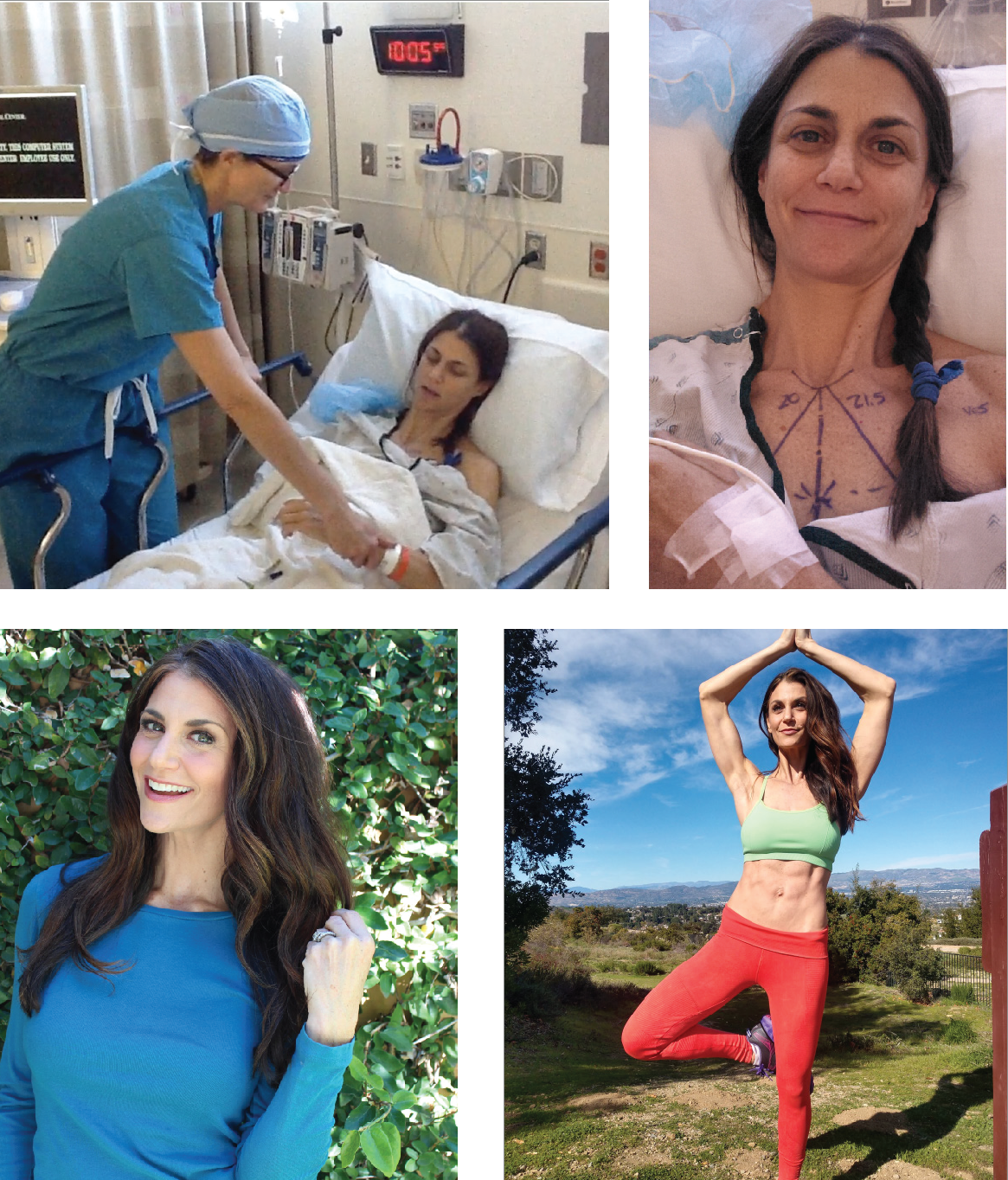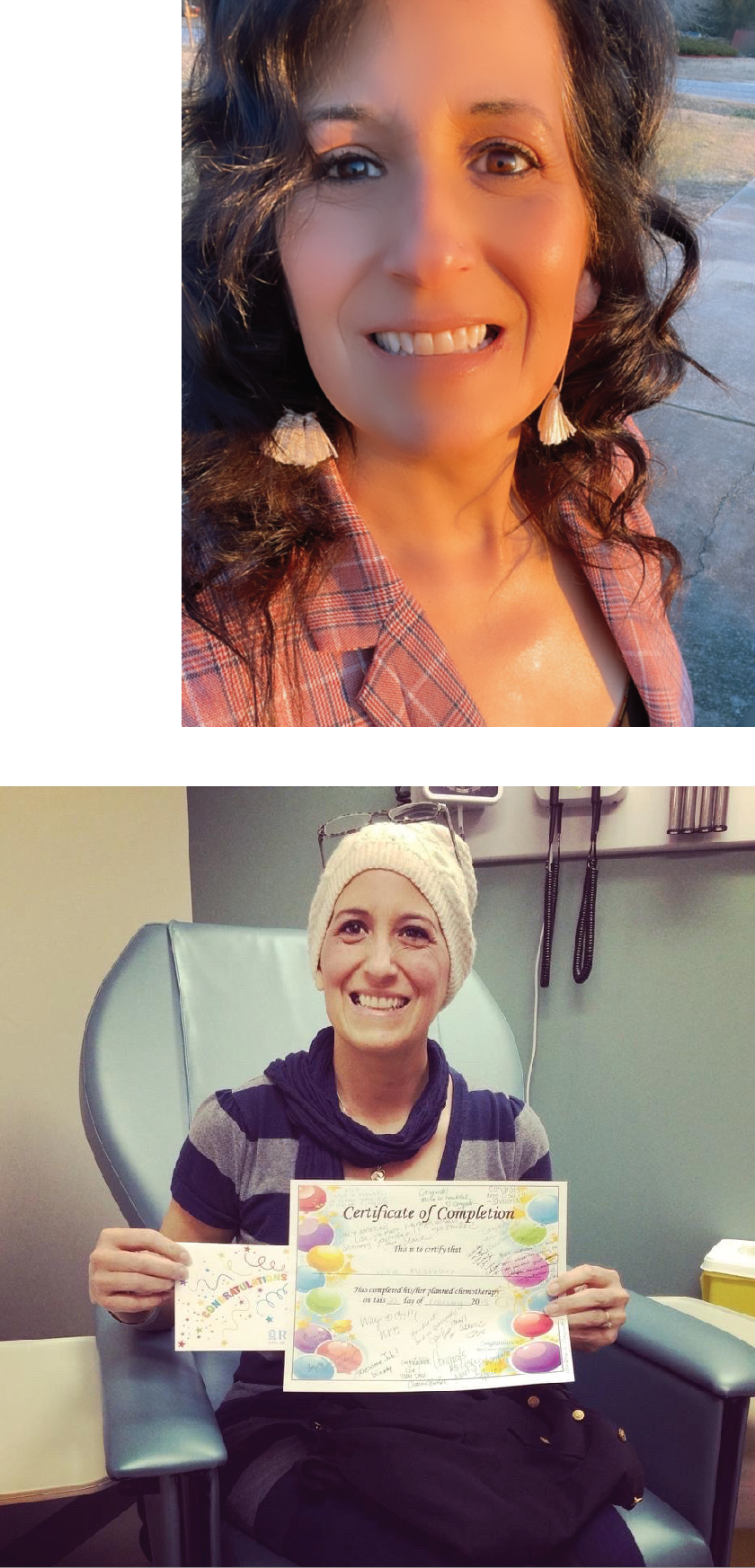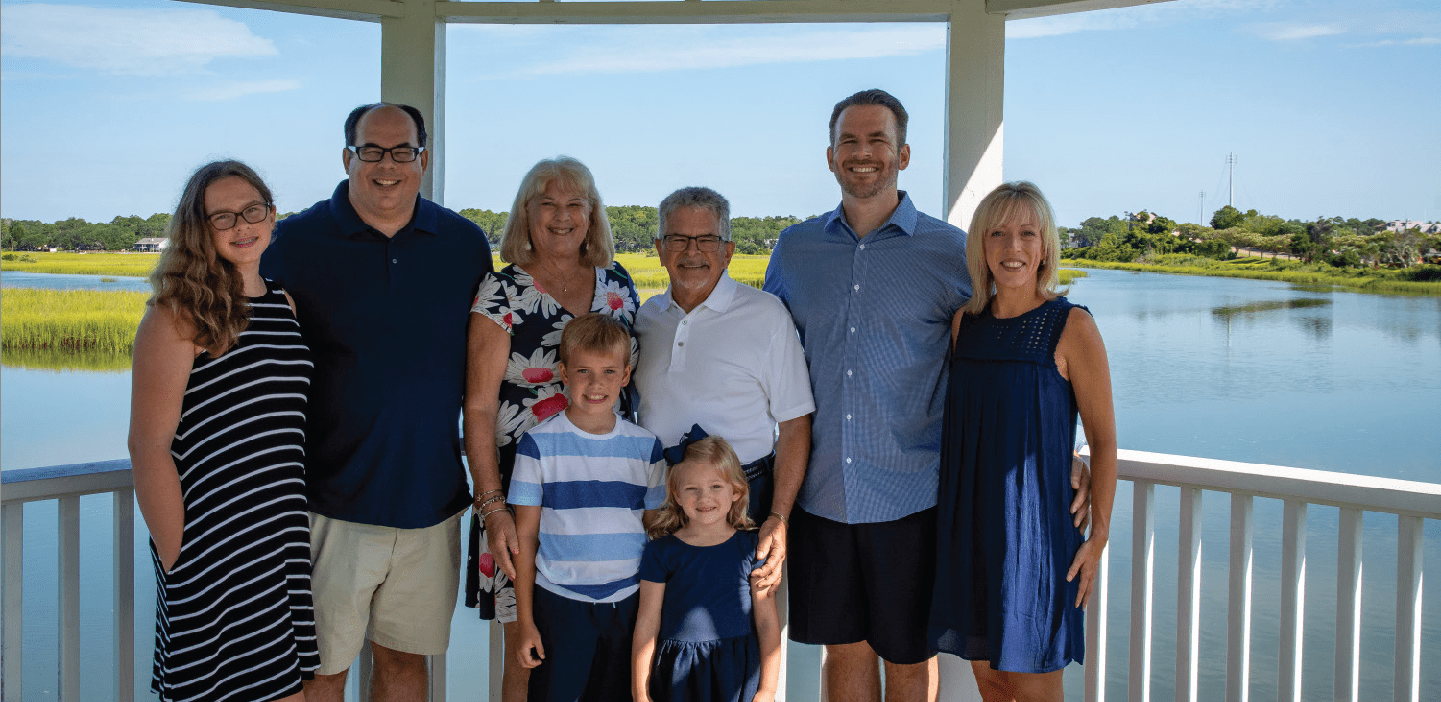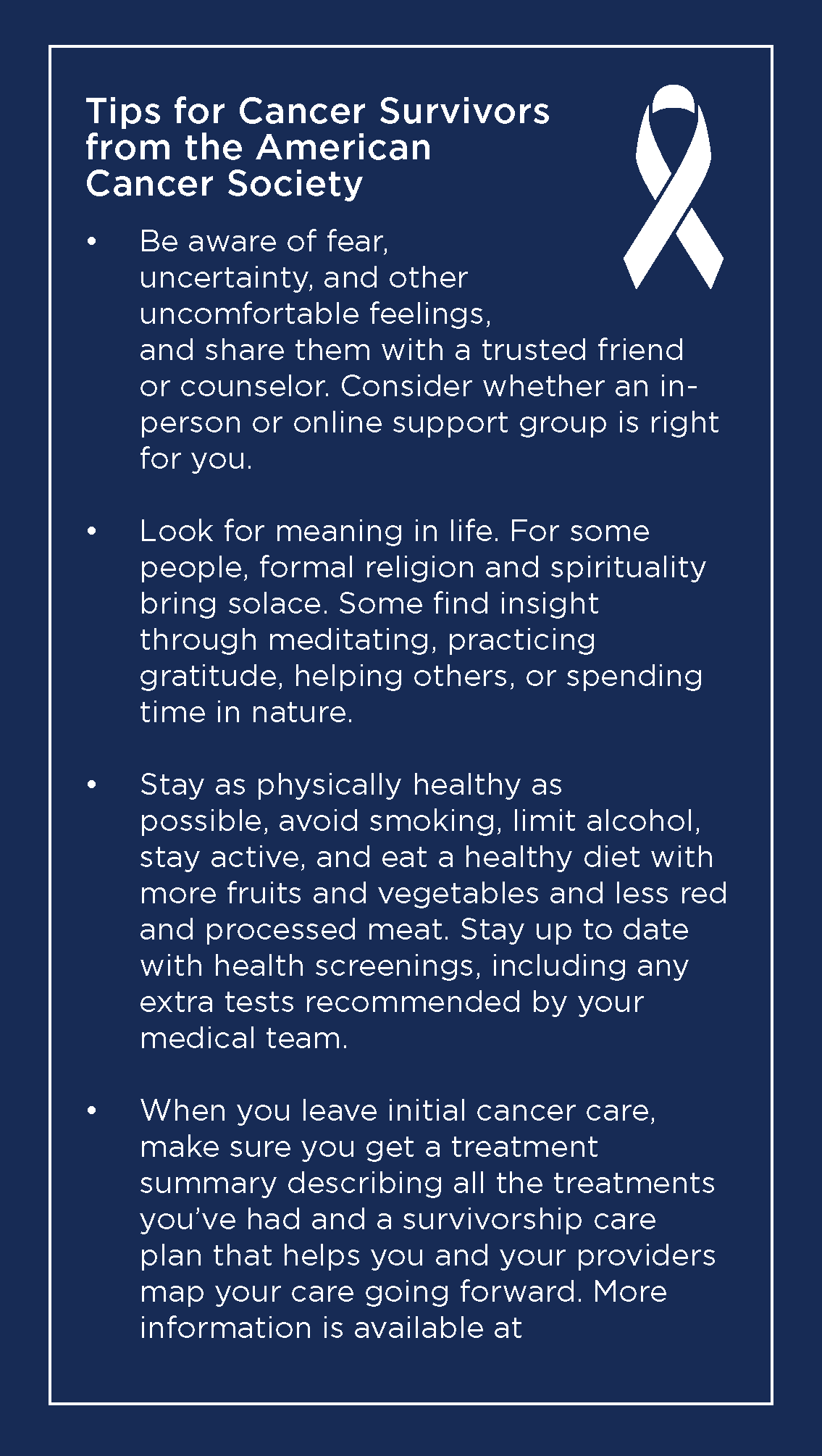Cancer Survivors Talk New Normal
For a brief, dark period, she says, everything changed. She suffered crushing anxiety over her diagnosis, her difficult treatment decisions, and her family’s future.
Eight years later, Harris, 48, is in a much brighter place, enjoying a new career as a certified health coach and a life that is “more productive, more energetic, and happier” than ever, she says. Harris is one of nearly 17 million cancer survivors living in the U.S., according to the American Cancer Society (ACS). Those millions include recently diagnosed patients and people many months or years past diagnosis. The number is expanding as the population grows and ages and as early detection and better treatment extends survival for more people with cancer, the ACS says.
Not everyone emerges from a cancer diagnosis feeling as well, physically and mentally, as Harris does. Cancer survivors are a diverse group, medically, psychologically, and otherwise, says Laura Makaroff, the ACS’s senior vice president for prevention and early detection. She says that some people complete initial treatment, get a clean bill of health, and never look back. Others have lingering health effects from chemotherapy, radiation, surgery, or other treatments. Some need ongoing treatment to keep cancer at bay or prevent recurrences. And many struggle with the mental health fallout of what’s often a life-threatening experience.
“It’s common for people who’ve been through an active cancer experience to have some anxiety or worry or concern about what the future will look like,” Makaroff says. “It’s a pretty intense experience … so getting support for mental health and mental well-being is so important.” The bottom line is that finding a new normal takes time and is different for everyone.
Here are stories of survivors and how they found their way forward in the years after a cancer diagnosis.
Samantha Harris: Learning to Ride the Waves
Fear, anxiety, a loss of control. Harris says she endured waves of despair in the early days after her cancer diagnosis. “I knew I couldn’t keep feeling that way,” she says. So, she says, she started looking for the light.
As she went through a double mastectomy and breast reconstruction, she focused on the good in her situation, including the strong support of friends and family. She started focusing on ways she could improve her health as a survivor. Her goal was not only to prevent a recurrence but also to ward off other health problems. She also wanted to be an example for others, including her daughters.
While she’d always stayed thin on a low-fat and low-sugar diet, she learned that she felt better on a diet rich in healthy fats, from foods like nuts, seeds, and avocados, and plenty of organic greens, berries, and other fruits and vegetables. She looked for ways to cut toxins from foods, makeup, and household products. She revamped her workouts, learning to adapt her moves to her changed body. She found ways to improve her relationships and reduce stress.
“I made sweeping changes with one tiny, small step at a time,” says Harris, who lives in Los Angeles with her husband and two daughters, now 11 and 14. As a certified health coach and fitness trainer, she helps other people make those kinds of changes through her subscriber community at yourhealthiesthealthy.com. Many of her clients are fellow cancer survivors.
For the most part, she says, cancer is “in the rearview mirror.” The most disruptive remaining reminders, she says, are night sweats caused by tamoxifen, a medication she will take for two more years to prevent recurrences. But, she says, she’s learned to deal with them, like everything else about her cancer.
Living well after cancer, she says, means “learning to ride the waves.”

Paul Brands: Cancer Is Now Part of My Life
Paul Brands, 66, is a retired human resources professional who enjoys traveling with his wife, spending time with his grown sons, golfing, and working as an executive coach. Outwardly, he says, he’s living much the same life he expected to live before he was diagnosed with prostate cancer and then kidney cancer at age 63.
Surgery cured his kidney cancer, caught on a scan he had after he was diagnosed with prostate cancer. His prostate cancer, found early thanks to a routine test for a prostate-specific antigen, was successfully treated with radiation and hormone injections.
“You would not know if you saw me that I’m a cancer survivor,” says Brands (not his real name), who lives in Charleston, South Carolina. But, he says, cancer did change him. For one thing, he says, he has a greater appreciation for life. The idea that “life is short, so you should enjoy it” has real meaning for him now.
The flip side of that awareness is a heightened sense of mortality. Brands says he’s much more likely to notice and brood a bit when he sees news reports about someone famous and young dying of cancer. He feels the most intense anxiety, he says, when he has an upcoming scan to check for cancer recurrences.
He repeatedly envisions the scene in which his doctor calls him in from the waiting room after a scan, “and my life could be changed in that one second.” But he also says that he relishes the “adrenaline rush” and gratitude he feels after every clean scan.
For the most part, he says, he focuses on positive feelings. “I was healthy. I am healthy. It was an episode in my life, and I’m probably going to be OK.”
But, he says, “Cancer is now a part of my life … for the rest of my life.”
Lisa Masteller: I Was Just So Low
Lisa Masteller had just finished the last of four rounds of chemotherapy for breast cancer when she hit an emotional low point. “I was done,” she says. “I was just so low.” Alone in her bedroom one morning in Raleigh, North Carolina, she appealed to God: “I just pretty much had a desperate talk with God. And I said, ‘God, I don’t know what the heck to do with my life.’”
Masteller says she saw God’s hand in what happened the next day when she was offered a big role in a project that got her back to work as a designer. She had her first meeting with her new clients while still bald from treatment.

That job, she says, was a crucial part of her healing. “That catapulted me into real life with real problems and challenges that I had to face. It was a huge gift,” says Masteller, now 53 and continuing to run her business, Sassafras Studios. But Masteller says that bouncing back from cancer isn’t a one-time thing. It’s a process, one she is still working through, nearly seven years after finishing chemotherapy and five subsequent surgeries.
Over the years, she says, she’s struggled with body image as she’s adapted to her reconstructed breasts and grappled with her weight. It’s a bit higher than she’d like because of a medication she takes to prevent cancer recurrence. Her husband, three grown children, and three grandchildren help her to stay grounded and grateful, she says. But, she says, she also now sees a therapist to help her deal with the fallout from cancer and other challenges, including childhood memories of losing her father to cancer.
Masteller says she does not struggle with fear of recurrence. She has always felt confident, she says, that her cancer “was going to be part of the story but not the end of the story.”
Jay Middleton: You Have to Adapt
A decade ago, Jay Middleton underwent major surgery for stage-three esophageal cancer, a disease that his doctors said he had a 7 percent chance of surviving. In the aftermath of the surgery, which involved the removal of most of his esophagus and a third of his stomach, he had to use a feeding tube for several weeks. He remembers it as a “challenging” experience.
But the retired insurance sales representative and Navy veteran from Ocean Isle, North Carolina, also remembers the day that the feeding tube came out. He was with his wife in Florida and insisted on going out with friends to a restaurant where, instead of settling for applesauce or Jell-O as a first meal, he ordered a dozen raw oysters.
As he slurped them down, he says, “My friends were looking at me like, are you crazy?” I said, “No, I’m celebrating.”
Middleton, 74, says he’s managed to maintain his joy for life ever since. He travels, volunteers at his church, and has helped raise money to fight cancer. He also rides a motorcycle and, as a Vietnam veteran, participates in the Rolling Thunder veterans’ organization.

The father of two and grandfather of three says he’s grateful for his family, his friends, his faith community, and his medical providers. “It’s not that I didn’t appreciate life before,” he says. “But I certainly do appreciate it more now.”
Cancer changes lives, he says, “but you have to adapt to it.” In his case, that means eating less than he’d like and giving up spicy foods because of his altered digestive tract. For years, it meant showing up for follow-up scans, at three-month and then six-month and then one-year intervals.
At his last appointment, his oncologist told him he didn’t need to come back. “That was a great relief,” he says. But every day, he says, brings something to celebrate, even if it’s just “being glad to see the sun come up.”
